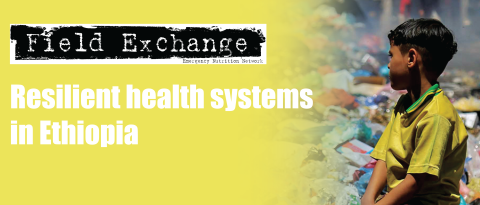A qualitative study of the root causes of undernutrition in Nairobi slums
Research snapshot1
 Children in slums are at high risk of undernutrition, which has long-term negative consequences on their physical growth and cognitive development and increases their risk of mortality. This study provides an analysis of the causes of undernutrition in children as perceived by community members in two slums in Nairobi, Kenya. The data used in the study were collected for a formative study in April 2012 that aimed to understand infant and young child feeding (IYCF) practices to inform a subsequent intervention. The present paper draws on this analysis of ten focus group discussions (FGDs) and ten individual interviews (KIIs) conducted with women of childbearing age, community health workers, community elders, community leaders and other knowledgeable people in the two slum communities.
Children in slums are at high risk of undernutrition, which has long-term negative consequences on their physical growth and cognitive development and increases their risk of mortality. This study provides an analysis of the causes of undernutrition in children as perceived by community members in two slums in Nairobi, Kenya. The data used in the study were collected for a formative study in April 2012 that aimed to understand infant and young child feeding (IYCF) practices to inform a subsequent intervention. The present paper draws on this analysis of ten focus group discussions (FGDs) and ten individual interviews (KIIs) conducted with women of childbearing age, community health workers, community elders, community leaders and other knowledgeable people in the two slum communities.
Questions included perceptions of the nutritional status of infants living in the local community; knowledge, attitudes and practices with regard to maternal, infant and young child nutrition; and nutritional status of children in urban slums. Questions focused on the contextual and sociocultural norms that in?uence IYCF practices. The FGDs and KIIs were recorded and transcribed verbatim. Key concepts were drawn out to enable thematic analysis.
A total of 90 individuals participated in FGDs (n=80) and KIIs (n=10). The analysis shows that participants understand the linkages between root causes and child nutritional health as expressed in the UNICEF conceptual framework. The respondents’ narratives strongly linked infant and child undernutrition and inadequate dietary intake, household food insecurity, inappropriate care and feeding practices. Identified risk factors included: water, sanitation and hygiene (WASH) practices, family planning, maternal work, parents’ alcohol abuse and consumption of street foods.
The authors conclude that to tackle the immediate and underlying causes of undernutrition in slum communities, interventions should aim to: (i) improve maternal health and nutrition; (ii) promote optimal IYCF practices; (iii) support mothers in their working role; (iv) increase access to family planning; (v) improve WASH; (vi) address alcohol problems at all levels; and (vii) address street food issues with infant feeding counselling.
Footnotes
1Goudet S, Kimani-Murage E, Wekesah F, Wanjohi M, Griffiths P, Bogin B and Madise N. (2017). How does poverty affect children’s nutritional status in Nairobi slums? A qualitative study of the root causes of undernutrition. Public Health Nutrition, 20(4), 608-619.


